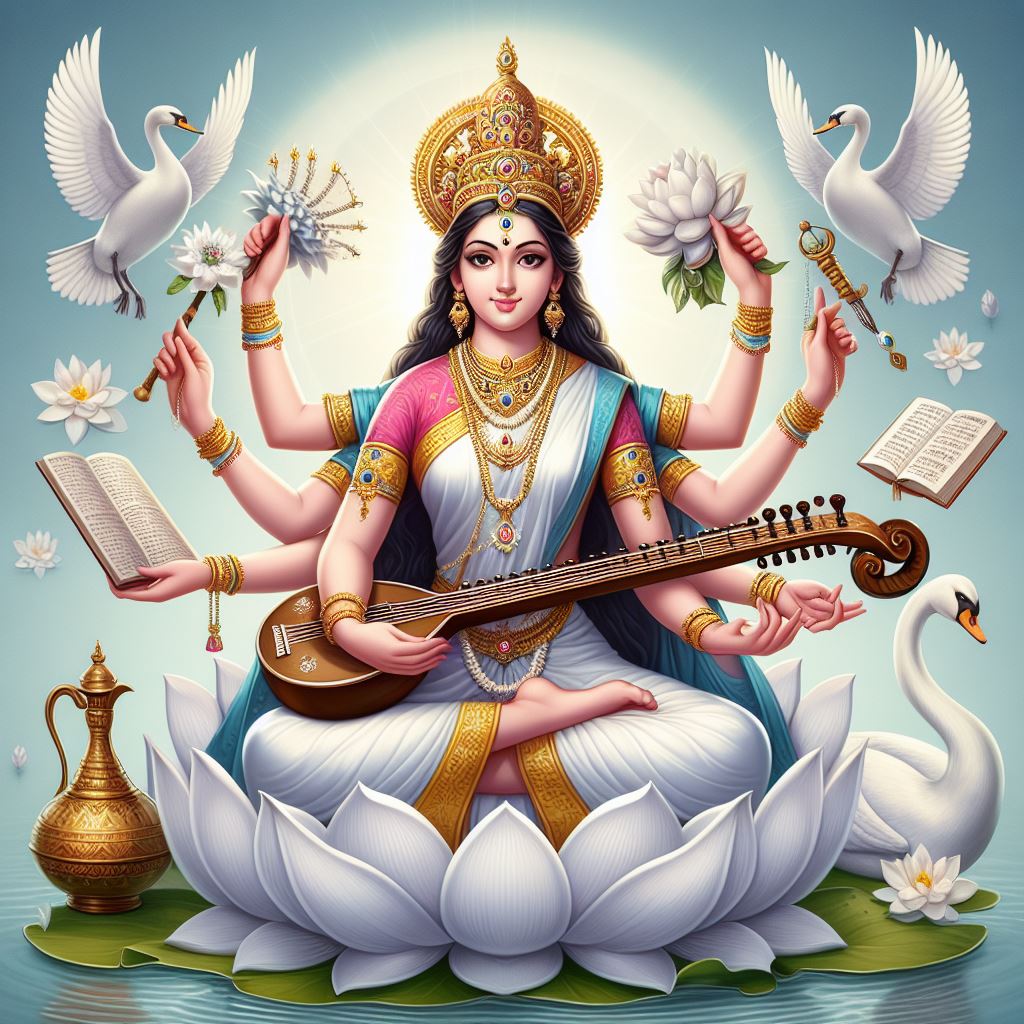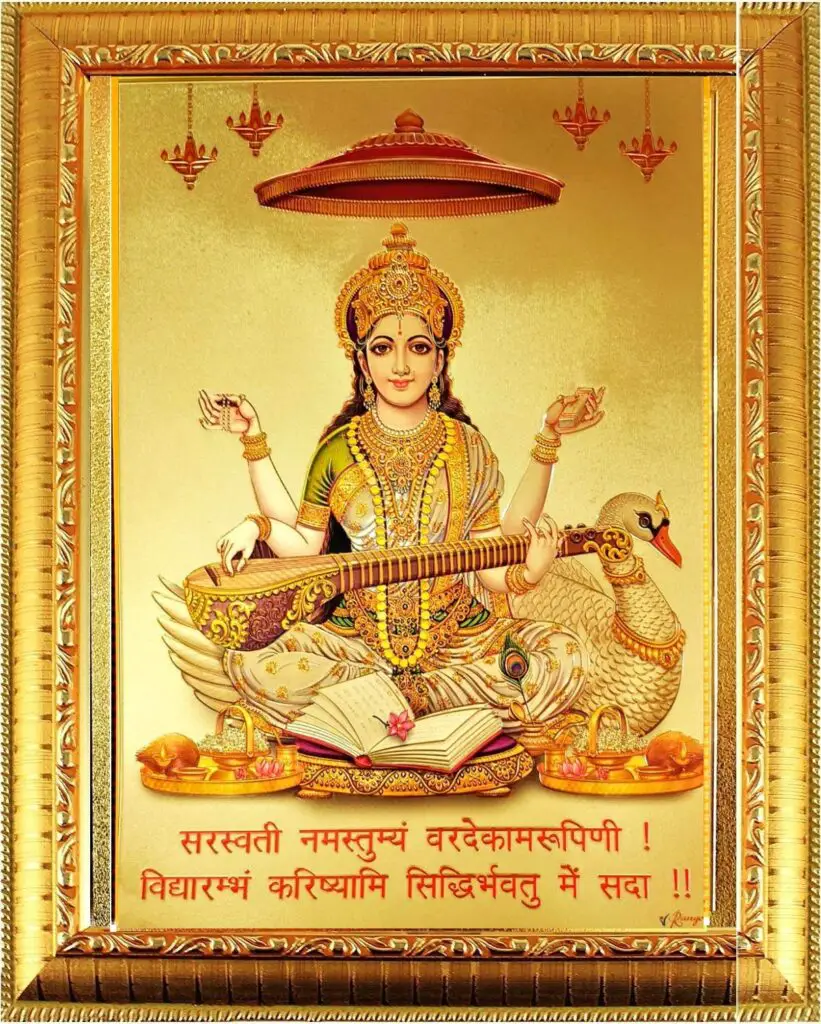Vasant Panchami: Celebrating the Arrival of Spring and Goddess Saraswati
Vasant Panchami, also known as Saraswati Puja, is a vibrant Hindu festival celebrated in various parts of India. It marks the arrival of spring and is dedicated to the worship of Goddess Saraswati, the deity of knowledge, music, arts, and learning. This auspicious occasion falls on the fifth day (Panchami) of the Hindu month of Magha, which usually falls in late January or early February.

The Significance of Vasant Panchami
Vasant Panchami holds great significance in Hinduism as it heralds the arrival of spring, a season associated with new beginnings, growth, and rejuvenation. The festival is celebrated with much enthusiasm and devotion, as it is believed that Goddess Saraswati bestows her blessings upon her devotees on this day. Saraswati is revered as the embodiment of knowledge, wisdom, and creativity. Devotees seek her blessings to excel in their studies, arts, and various other fields of knowledge.

The Rituals and Traditions
On Vasant Panchami, devotees wake up early in the morning and take a holy bath. They wear yellow clothes, which symbolize the blossoming mustard fields that are characteristic of this season. Yellow is also considered the color of knowledge and learning. In homes and temples, a special puja (worship) is performed, dedicated to Goddess Saraswati. Books, musical instruments, and other tools of knowledge are placed before the deity as a mark of respect.
During the puja, prayers and hymns are recited to seek the blessings of Goddess Saraswati. Students, artists, and intellectuals gather to offer their prayers and seek her guidance. Many educational institutions organize special events and cultural programs to celebrate the occasion. It is common to see children initiating their learning journey on this day, as they are introduced to reading and writing for the first time.
Another popular tradition associated with Vasant Panchami is the flying of kites. The sky becomes a colorful canvas as people of all ages engage in kite-flying competitions. The sight of numerous kites soaring high is a symbol of joy and freedom.

Vasant Panchami Celebrations Across India
Vasant Panchami is celebrated with fervor in different parts of India, each region adding its unique flavor to the festivities.
In West Bengal, Saraswati Puja is one of the most significant events of the year. Elaborate arrangements are made to worship the goddess in schools, colleges, and homes. The idols of Saraswati are adorned with flowers and offered sweets and fruits. Cultural programs, including music and dance performances, are organized to showcase the talents of students.
In Uttar Pradesh and Bihar, Vasant Panchami is celebrated as the birthday of Goddess Saraswati. Devotees visit temples dedicated to the goddess and offer their prayers. A special sweet dish called “kheer” is prepared and distributed as prasad (divine offering).
In Punjab, the festival is known as “Basant Festival of Kites” and is celebrated with great enthusiasm. People fly colorful kites, participate in kite-flying competitions, and enjoy traditional Punjabi music and dance.
The Symbolism of Vasant Panchami
Vasant Panchami holds deep symbolism beyond its religious and cultural significance. It is a celebration of the power of knowledge, creativity, and the beauty of nature. The arrival of spring brings with it a sense of hope, renewal, and the promise of a brighter future. The festival serves as a reminder to embrace learning, nurture our talents, and appreciate the wonders of the world around us.
As we celebrate Vasant Panchami and pay homage to Goddess Saraswati, let us be inspired to seek knowledge, cultivate creativity, and embark on a journey of lifelong learning.
May the blessings of Goddess Saraswati be with all of us as we embrace the arrival of spring and the endless possibilities it brings.
Suninow Photo Frame of Saraswati ji

